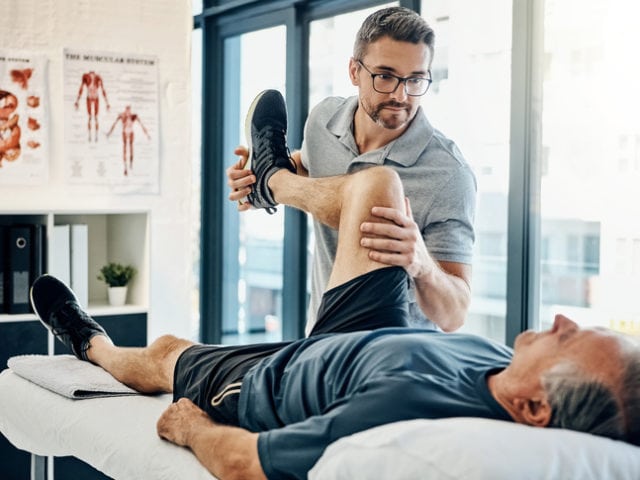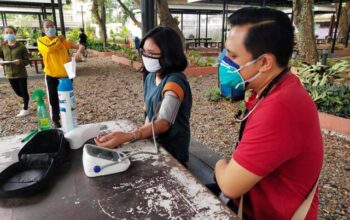Undergoing surgery can be a life-changing experience. Whether it’s a minor procedure or a major operation, the road to recovery can be challenging and often involves more than just the surgical aspect. Physical therapy plays a vital role in post-surgery recovery, offering a plethora of benefits that can help individuals regain their strength, mobility, and overall quality of life. In this blog post, we will explore the numerous advantages of physical therapy in the context of post-surgery rehabilitation.
Pain Management
One of the primary concerns after surgery is pain. Physical therapists are experts in pain management, utilizing various techniques to alleviate discomfort and improve patients’ overall well-being. Through hands-on therapy, targeted exercises, and modalities like heat and cold therapy, they help reduce pain levels, allowing individuals to progress in their recovery journey more comfortably.
Improved Mobility and Flexibility
Surgery often leads to restricted mobility and joint stiffness due to the immobilization of certain body parts. Physical therapists work diligently to address these issues, designing tailored exercise programs that focus on stretching and strengthening muscles, tendons, and ligaments. These exercises gradually restore mobility and flexibility, enabling patients to regain their independence.
Preventing Muscle Atrophy
During the recovery period, prolonged bed rest or reduced physical activity can result in muscle atrophy. Physical therapists employ resistance exercises to counteract this process. By targeting specific muscle groups, they help patients rebuild lost muscle mass, leading to improved strength and function.
Enhancing Circulation
Post-surgery recovery can sometimes involve swelling and reduced blood flow in the affected area. Physical therapists employ techniques such as manual lymphatic drainage and therapeutic massage to enhance circulation and reduce swelling. This not only accelerates the healing process but also lowers the risk of complications like blood clots.
Scar Management
After surgery, scars are an inevitable part of the healing process. Physical therapists can provide guidance on scar management techniques to minimize their appearance and improve tissue flexibility. This not only enhances aesthetics but also helps prevent issues like adhesions that can limit movement.
Regaining Independence
Many individuals require assistance with daily activities after surgery, which can be frustrating and demoralizing. Physical therapists work on improving patients’ ability to perform these tasks independently, such as dressing, bathing, and getting in and out of bed. This restoration of independence is invaluable for boosting patients’ confidence and overall well-being.
Tailored Rehabilitation Plans
Physical therapy is highly individualized, with therapists creating rehabilitation plans tailored to each patient’s unique needs and goals. Whether it’s recovering from orthopedic surgery, cardiac surgery, or any other procedure, the therapy is adapted to address the specific challenges associated with that surgery.
Improved Posture and Alignment
Surgery can alter the body’s natural alignment, leading to issues like poor posture and gait abnormalities. Physical therapists employ techniques and exercises to correct these problems, reducing the risk of developing chronic pain or further complications down the road.
Preventing Future Complications
Physical therapists don’t just focus on the immediate post-surgery period; they also work to prevent future complications. Through education and exercises, they teach patients how to maintain their progress and prevent issues like muscle imbalances or joint problems that could arise in the future.

Psychological Support
The recovery process can be emotionally taxing, with patients often experiencing anxiety and depression. Physical therapists provide not only physical but also emotional support. They encourage patients, monitor their progress, and celebrate small victories, which can boost morale and motivation during the rehabilitation process.
Faster Recovery Time
Studies have shown that individuals who undergo physical therapy post-surgery tend to recover more quickly than those who do not. By addressing physical limitations early on and providing a structured plan, physical therapy can help patients get back to their regular activities and routines sooner.
Avoiding the Need for Additional Surgery
In some cases, proper post-surgery physical therapy can help individuals avoid the need for additional surgical procedures. By maximizing the healing potential of the body and preventing complications, physical therapy can be a cost-effective and non-invasive alternative. Come and visit PT Link to find more information about physical therapy.
Conclusion
The benefits of physical therapy for post-surgery recovery are undeniable. It plays a crucial role in pain management, improving mobility and flexibility, preventing muscle atrophy, enhancing circulation, and addressing various other aspects of the healing process. Additionally, physical therapy offers psychological support, speeds up recovery time, and can even help individuals avoid the need for additional surgery. Therefore, anyone considering surgery should consult with a physical therapist to create a comprehensive post-surgery rehabilitation plan that maximizes their chances of a successful recovery and a return to a healthy, active life.





